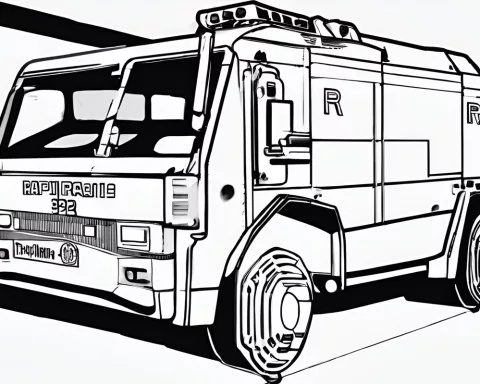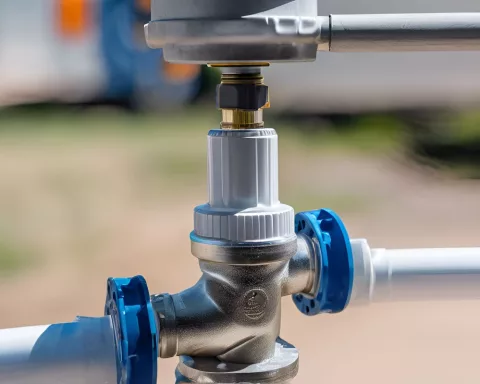South Africa is facing a potential cholera epidemic in 2024, with a noticeable spike in suspected cases reported. Cholera is an acute diarrheal disease caused by a bacterial infection and is typically spread through contaminated food and water. Immediate medical attention and rehydration are crucial for suspected cholera patients. To prevent an outbreak, a comprehensive and proactive health policy approach is necessary, including health literacy, proper sanitation practices, and medical readiness. The response to this impending health crisis will be a testament to South Africa’s resilience and fortitude.
What is the potential for a cholera outbreak in South Africa in 2024?
South Africa finds itself on the edge of a possible cholera epidemic, with an increase in suspected cases reported in 2024. Understanding the nature of cholera and its transmission paths is crucial for safeguarding against an imminent outbreak. The key treatment approach for suspected cholera patients is to gain immediate medical attention and rehydration is crucial. A comprehensive and proactive health policy approach is needed to prevent a 2024 cholera outbreak in South Africa.
Prelude to a Health Crisis
In 2024, South Africa finds itself on the precarious edge of a possible cholera epidemic. This dire prediction is according to a warning issued by Dr. Joe Phaahla, the country’s Health Minister. During a media briefing, held in Pretoria on February 5, 2024, Dr. Phaahla expressed grave concern over the noticeable spike in suspected cholera cases reported this year, underscoring the urgency of the situation.
This potential health catastrophe is not an unfamiliar foe to South Africa. Exactly one year prior, in February 2023, the World Health Organisation confirmed a similar health emergency in the country. The current predicament eerily mirrors the past, indicating a recurring pattern that seems to suggest a cyclical epidemic.
Dr. Phaahla’s account unveiled that of the 46 suspected cases, three could be linked to Zimbabwe, while two confirmed cases exhibited no trace of travel to any known cholera-endemic regions. This information followed closely on the heels of a report from the National Institute for Communicable Diseases (NICD), which documented a chilling number of over 20,000 cholera cases spanning 12 African countries, including Zimbabwe, Mozambique, Malawi, and Zambia.
An Understanding of Cholera
Cholera is an acute diarrheal disease, triggered by a toxigenic bacterial infection in the intestine. The disease elicits substantial public worry, as illustrated by Google Trends data from 2023 which listed ‘How is cholera transmitted?’ among the leading searches from South Africa.
Comprehending the nature of cholera is a pivotal step towards safeguarding against an imminent outbreak in 2024. The illness is spread typically through the ingestion of food or water tainted by fecal matter. It tends to spread rapidly in regions with inadequate sanitation facilities and poor drinking water treatment. The symptoms range from extreme fluid loss, leading to dehydration and shock, and if not treated promptly, can result in death within hours.
The key treatment approach for suspected cholera patients is to gain immediate medical attention. Rehydration is a crucial aspect of the treatment process, and the administration of a rehydration solution is recommended, if available.
The Current Situation and Its Implications
The NICD highlights an increase in travelers returning from cholera-affected countries as a substantial factor contributing to South Africa’s existing predicament. The most recent confirmed cases were reported in Limpopo, along with an additional case in Gauteng.
South Africa’s unfolding health crisis underscores the need for international health vigilance. It draws attention to the interconnectedness of health issues across borders, as seen in the suspected cases traced back to Zimbabwe. A comprehensive and proactive health policy approach that focuses not only on treatment methods but also on preventive strategies is now more crucial than ever.
Towards a Cholera-Free Future
The prevention of a 2024 cholera outbreak in South Africa calls for more than just an understanding of the disease and its transmission paths. It necessitates health literacy and proper sanitation practices to prevent water and food contamination. It demands medical readiness to provide an immediate response and treatment for those infected.
As South Africa anticipates the potential cholera outbreak in 2024, the country must prepare to confront this challenge. The threat is imminent, and the time to take action is now. The health and overall well-being of the South African populace are at stake, and the nation’s response to this impending health crisis will be a testament to its resilience and fortitude.
What is cholera and how is it transmitted?
Cholera is an acute diarrheal disease caused by a bacterial infection and is typically spread through contaminated food and water. It tends to spread rapidly in regions with inadequate sanitation facilities and poor drinking water treatment.
What is the current situation in South Africa regarding cholera?
South Africa is facing a potential cholera epidemic in 2024, with a noticeable spike in suspected cases reported. The most recent confirmed cases were reported in Limpopo, along with an additional case in Gauteng. The increase in travelers returning from cholera-affected countries is a substantial factor contributing to South Africa’s existing predicament.
What are the symptoms of cholera and how is it treated?
The symptoms of cholera range from extreme fluid loss, leading to dehydration and shock, and if not treated promptly, can result in death within hours. The key treatment approach for suspected cholera patients is to gain immediate medical attention. Rehydration is a crucial aspect of the treatment process, and the administration of a rehydration solution is recommended if available.
How can a cholera outbreak be prevented in South Africa?
Preventing a 2024 cholera outbreak in South Africa calls for more than just an understanding of the disease and its transmission paths. It necessitates health literacy and proper sanitation practices to prevent water and food contamination. It demands medical readiness to provide an immediate response and treatment for those infected.
What is the need for international health vigilance regarding cholera outbreaks?
South Africa’s unfolding health crisis underscores the need for international health vigilance. It draws attention to the interconnectedness of health issues across borders, as seen in the suspected cases traced back to Zimbabwe.
Why is a comprehensive and proactive health policy approach necessary to prevent a cholera outbreak?
A comprehensive and proactive health policy approach that focuses not only on treatment methods but also on preventive strategies is necessary to prevent a 2024 cholera outbreak in South Africa. It is crucial to safeguard against an imminent outbreak, and the response to this impending health crisis will be a testament to South Africa’s resilience and fortitude.












